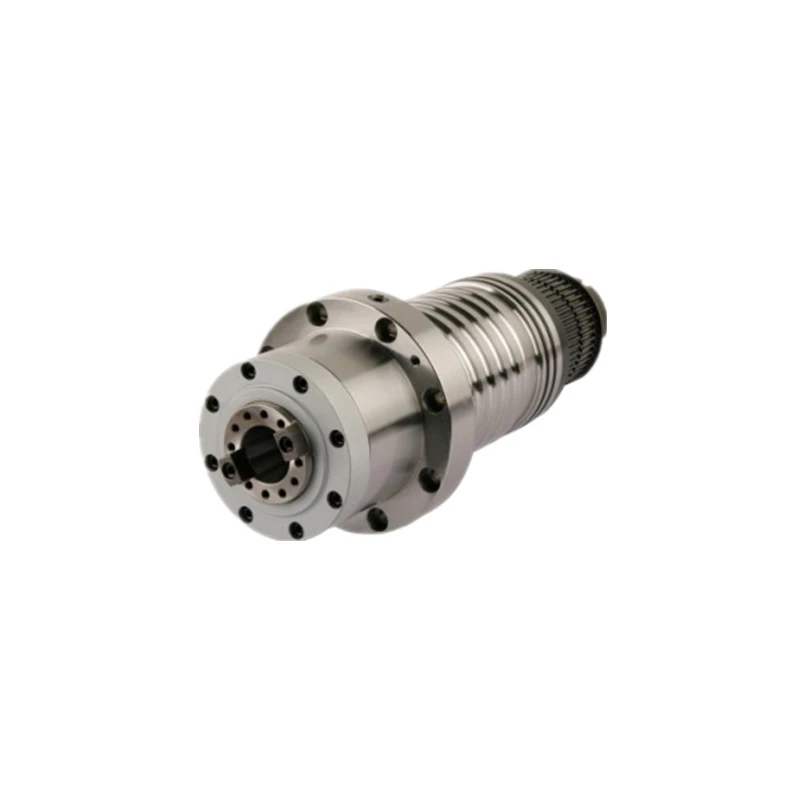12 月 . 04, 2024 09:30 Back to list
plc kalıplama makinesi
The Significance of PLC-Based Molding Machines in Modern Manufacturing
In today's fast-paced industrial landscape, efficiency and precision are paramount. One of the key technologies driving advancements in manufacturing is the use of Programmable Logic Controllers (PLCs). When integrated into molding machines, PLCs enhance automation, streamline operations, and improve product quality. This article explores the significance of PLC-based molding machines, their operation, and their impact on various industries.
What is a PLC?
Programmable Logic Controllers are specialized industrial computers designed for automation of manufacturing processes. They consist of a processor, input/output peripherals, and a programming environment. PLCs can be programmed to perform complex control functions, making them invaluable in any automated setup. Their robust design allows them to operate reliably in harsh industrial environments, an essential feature for machinery exposed to various stresses.
The Role of PLCs in Molding Machines
Molding machines are crucial for producing a wide range of plastic products, from simple components to intricate designs used in various sectors, such as automotive, aerospace, and consumer goods. PLCs in molding machines facilitate numerous functions, including
1. Automation PLCs automate the entire molding process, from material feeding to cooling and ejection of the finished product. This automation significantly reduces labor costs and minimizes human error.
2. Precision Control PLCs enable precise control over temperature, pressure, and timing parameters during the molding process. This precision is critical for maintaining product quality and ensuring consistency across production batches.
3. Monitoring and Feedback Modern PLCs can collect real-time data from various sensors integrated into the molding machine. This data provides manufacturers with valuable insights into operational efficiency and product quality, allowing for timely adjustments and maintenance.
4. Flexibility One of the primary advantages of PLCs is their programmability. Manufacturers can easily adjust the machine's operation parameters based on changing production needs. This flexibility is particularly beneficial in industries where product designs are frequently updated.
plc kalıplama makinesi

Benefits of PLC-Based Molding Machines
The integration of PLCs into molding machines offers several benefits that contribute to improved manufacturing outcomes
- Increased Efficiency Automated processes reduce cycle times and optimize the use of materials, leading to higher output rates without compromising quality.
- Enhanced Safety PLCs can implement safety protocols that monitor machine operations and halt processes in case of anomalies or emergencies, thus protecting workers and equipment.
- Cost Reduction The combination of increased efficiency and reduced waste translates into significant cost savings. Furthermore, optimized maintenance schedules derived from real-time monitoring can extend equipment lifespan and reduce downtime.
- Improved Quality Control With precise control over the molding process, manufacturers can achieve uniformity and quality in their products, which is essential for competitiveness.
Conclusion
PLC-based molding machines represent a significant leap forward in manufacturing technology. By integrating advanced automation and precise control, these machines enhance productivity, ensure consistent quality, and improve overall operational efficiency. As industries continue to evolve and demand greater flexibility and higher standards, the role of PLCs in molding machines will undoubtedly become more critical.
In conclusion, the significance of PLCs in molding technology cannot be overstated. They not only streamline production processes but also contribute to the competitiveness and sustainability of manufacturers in an ever-changing market. As technological advancements continue to emerge, embracing PLC-based automation will be essential for industries aiming to thrive in the Fourth Industrial Revolution.
-
Why Steel Mills Rely on FODA’s High-Temperature Cylindrical Roller Bearings?
NewsApr.10,2025
-
What is a Plain Bearing? A Complete Guide to Design & Functionality
NewsApr.10,2025
-
Thrust Ball Bearings vs. Tapered Roller Bearings: FODA’s Performance Comparison
NewsApr.10,2025
-
The Engineering Behind FODA Thrust Ball Bearings: Precision for High-Speed Applications
NewsApr.10,2025
-
No More Compromises: Get Precision-Engineered Custom Bearings Tailored to Your Exact Specifications
NewsApr.10,2025
-
In-Depth Analysis: Application Differences of Different Types of Angular Contact Ball Bearings
NewsApr.10,2025
Products categories
















